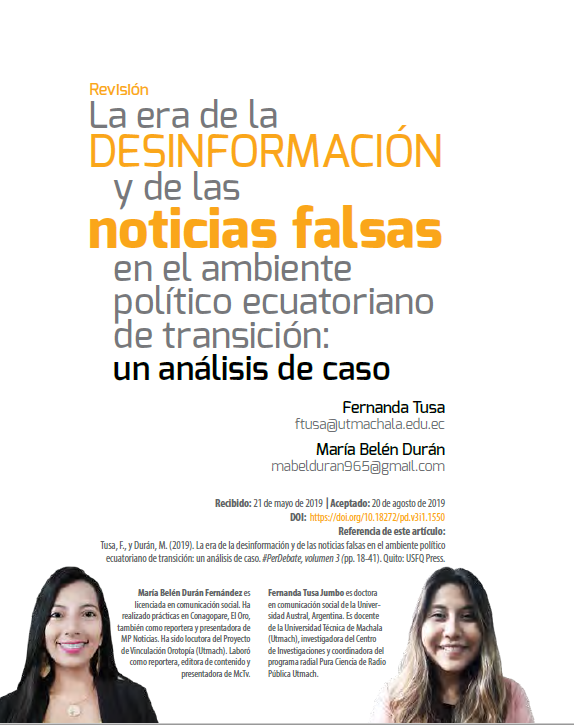The era of misinformation and fake news in the ecuadorian political transition environment A case analysis
Main Article Content
Abstract
This article analyzes the problem of misinformation and false news in the Ecuadorian political context of transition, the change of president in the 2018-2019 period. To this end, a case analysis is structured focusing on the follow-up of the content of a militant of the Alianza Pais (AP) political movement and the monitoring of his Facebook account in the month of November-December 2018. The methodology applied, of a qualitative nature, uses techniques such as content analysis and virtual ethnography. The results show the type of false news used by this user-object of study and the recurrent themes in its digital activism. As a conclusion, it is considered that the phenomenon of false news is consciously produced by political activists in social networks, whose activism is based on the absolute defense of a particular dogma. Finally, it is recommended that the academy should include media literacy programs that promote the recognition of false news and forms of denunciation from civil society.

